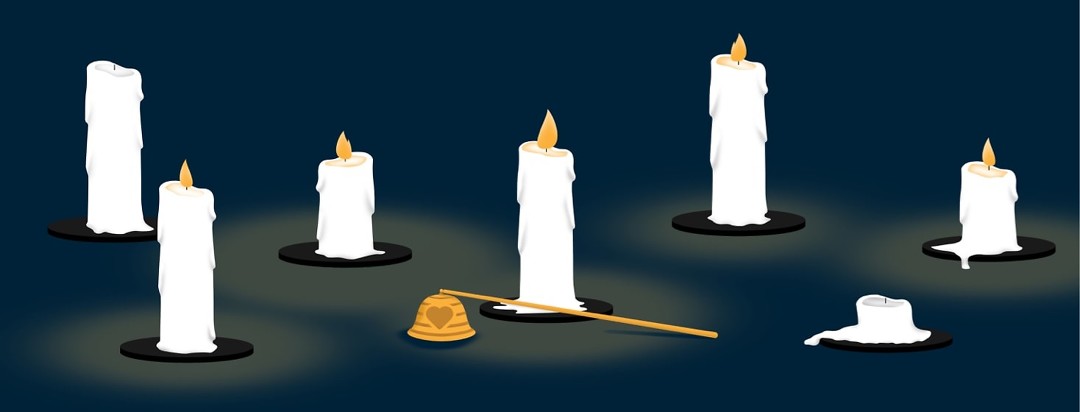A Taboo Topic: Alzheimer's and the Concept of Death With Dignity
I have had a lot of time lately to reflect on the journey I watched my dad walk with Alzheimer's, which led to his passing. The journey was horrible for him, for Mom, and us, his family. I worry that his journey could be mine in the future. I don't have the same risk factors as my dad, but I, unfortunately, have others that could lead to a similar path. Dad's journey and a gent I follow on Twitter has caused me to go to a place I never thought I'd go: to explore death with dignity.
What is death with dignity?
The gent I follow on Twitter is 39 years of age. According to his tweets, he found out a year ago he had very aggressive thyroid cancer. According to him, he is beating some of the odds in still being alive as he was diagnosed with stage IV cancer for which there is no treatment. His life expectancy is very short.
He decided to die with dignity, to legally choose his time of death, so he could avoid the horrendous type of death he would be facing. He talks about all of this openly; I have never read the likes of it before. I wanted to learn more to reflect on what I might do if I became the victim of some form of dementia. I also wanted to know if dying with dignity legislation applied to someone with dementia.
The strict criteria for physician-assisted death
I started by searching out what was legislated in different countries. I live in Canada, but I will start with what has been accepted in the USA. Over 10 years ago, the discussion began. Currently, 8 states have laws that support physician-assisted death (PAD).1
Each state is different in how they apply the legislation and with what strict criteria. Part of the criteria in most states requires the person to be terminal and of sound mind to make such a decision within a certain period, often within 6 months of impending death.2
A person living with cancer may be of sound mind to know when it is time to end their life. They can do this knowing that there are no options left, and rather than live in increasing pain, they can decide that 'now' is the time.
It would be difficult to apply the criteria to Alzheimer's
The same cannot be said for people with Alzheimer's or some form of dementia. It is difficult to apply the criteria. Since the average time from diagnosis to death with dementia is anywhere from 4 to 20 years, it is apparent that the rule of law, as written, can't easily apply if at all.3
The person is not of sound mind. It is difficult to predict within 6 months when death will occur. Significant concern was raised that those who would have to decide for a loved one with impaired cognitive ability could make it based on financial gain. There is concern that this 6-month restriction could force a terminal person to decide to end their life before it is necessary because they know they will not be of sound mind later. Such is the case of a Canadian woman with cancer.4
The role of advanced directives
The Netherlands, Luxembourg, and Belgium have approved an advanced directive. This directive supports people who have diseases like dementia and are mentally unable to make the decision when the time comes to die with dignity.5,6
This has been seen by many countries as a very slippery slope. Understandably. But is it right to deny someone with Alzheimer's or any other dementia the right to die with dignity?
The legislation in Canada allows for Medical Assistance in Dying (MAiD), but the advance directive for allowing someone else to make the decision when it is time for the incapacitated person does not apply. It has been banned.7
Our government has stated they will talk about this issue but are not going to change the laws anytime soon regarding being of sound mind at the time death is chosen.
Is Alzheimer's death with dignity?
So the choice for persons with Alzheimer's then would be to potentially die before their chosen time or suffer from a disease that will leave them in a vegetative state longer than needed. The way the law is applied in the USA is not so different.
How is that right? I offer my opinion when I say most people do not want to die. Most people do not want to say goodbye. But the option should be there with inclusive criteria to account for those who cannot be 'of sound mind' when the time comes.
Legislation needs to change
My dad would never have chosen death by choice. My mom would never have supported that prior to knowing what dad would go through living with it, the suffering he endured. For me, I now have an experience that I wish I never had, but it has given me pause to consider what I would do. I would not want my family to suffer by watching me slowly leave like my dad did, leaving a shell without the man. Would I have the courage to make the decision to die with dignity as the gent on Twitter or the woman with cancer? I don't know.
What I do know is the legislation needs to change. The option to die with dignity has to be there for people with dementia who need the choice.

Join the conversation